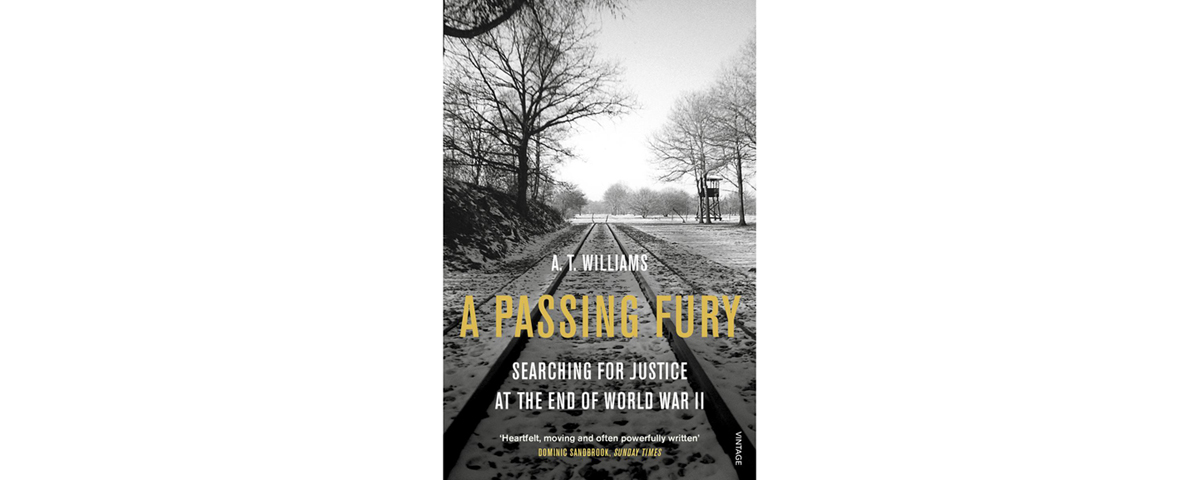A Passing Fury: Searching for Justice at the End of World War II, by A.T. Williams, Random House UK, London, 2017, $18.95
Among the serious issues facing the Allies in the wake of World War II was the question of how best to deal with atrocities committed by the Nazi regime—specifically how to pursue retribution without making martyrs of their defeated foes. A Passing Fury addresses that search for justice—by the Allies (from an almost exclusively British perspective) and decades later by British author-researcher A.T. Williams. As he relates, however, justice was difficult to achieve.
Inexperienced and underqualified investigative teams posed an initial problem, and the obstacles only mounted, as the public will to pursue and pay for war-crime prosecutions waned with time, while the media often seemed more interested in the spectacle of the trials. When the Nazi atrocities first came to light, the public outcry for justice was universal, but the process soon bogged down in disputes among the Allies regarding just how to try war criminals. Eventually, argues Williams, the scale of the undertaking—the thousands of concentration camp guards and members of SS units to be prosecuted—overwhelmed legal authorities and sapped the will of all involved. The prosecutorial system slowed and then stopped altogether.
Williams of course mentions Nuremberg—the highest-profile series of trials, which helped set the tone for those that followed. But he also delves into lesser-known proceedings, including those for defendants affiliated with the camps at Neuengamme, Bergen-Belsen and Dachau. Throughout the retelling Williams weaves his own experiences while researching the book, describing, for example, his visit to a concentration camp amid an account of the trial of personnel from the same camp. The result is a cohesive narrative that blends past with present, providing an absorbing, if not particularly encouraging, look into the search for justice at war’s end.
—David Harris





